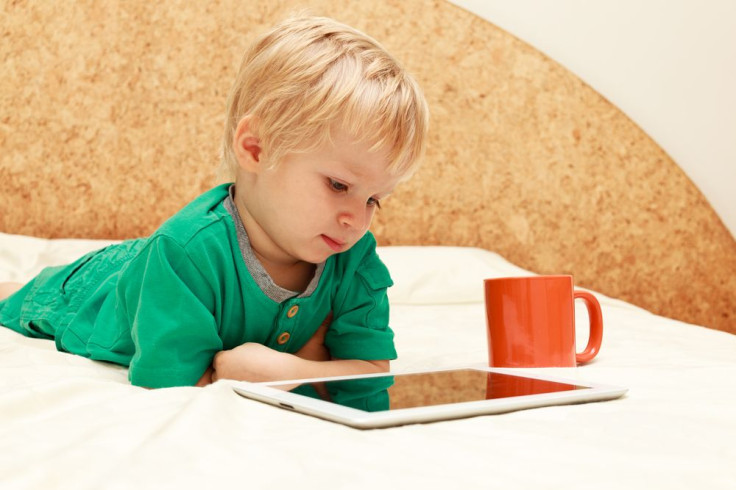Toddlers Obsessed With Technology May Impair Their Developmental Ability

Gone are the days when a simple game of “peek-a-boo” or playing with Thomas the Tank Engine were normal for toddlers under 2. Instead, their time is now mostly occupied by iPads and other digital media devices. While it’s not necessarily bad for them, it’s not exactly good either. That’s because scientists are still trying to figure out how the extra screen time is affecting their developing brains.
“The bottom line is that it’s so new we don’t know if it’s good, bad, or otherwise,” Tovah Klein, director of the Barnard College Center for Toddler Development, told the NY Daily News. “But there is a lot of other research that shows the main learning and sustenance for young children — particularly under 2 — comes from their relationships, particularly with their parents and whomever takes care of them.”
A lot happens during a child’s first couple of years. Besides learning to walk and talk, they also learn about social interactions and begin to build the foundation for once they’re in school — math and reading. These developments are only made possible, however, when the child is actively engaging with their caregiver, and even if the child isn’t using digital media, a parent who is may be passing up an opportunity.
Meanwhile, among children slightly older than 2, research has shown that only one extra hour of TV can lower a child’s motor skills and psychosocial abilities. This is due, in part, to most children — or parents, rather — not using their screen time wisely. Out of a little more than two hours of screen time each day, most kids spend about 56 minutes on educational programming. Yet, even video series that claim to be beneficial to their development, like “Baby Einstein” and “Brainy Baby,” have been proven to be ineffective. If that’s the case, why are more kids spending time on tablets and smartphones?
A recent survey from Common Sense Media, a San Francisco-based media and technology research company that focuses on educating families, found that 38 percent of toddlers under 2 use tablets or smartphones — a big jump from 10 percent in 2011, the Daily News reported. Many parents allow it because they need to distract their child, and it’s a valid reason, but it must be done in moderation. Using a tablet or smartphone is still a sedentary activity.
If parents have a difficult time keeping their child quiet at a restaurant or other public area, leaving them with a babysitter rather than putting an iPad in front of them could be a better option, Klein told the Daily News. Also, when the child has the opportunity to get up and explore, he or she should do so rather than being on a device. Interaction is also key, she said. Put the phone away, and show the child that you too can go without a phone. If the child gets upset about something, instead of giving them a device to play with, talk to them about what’s bothering them, Klein said.



























